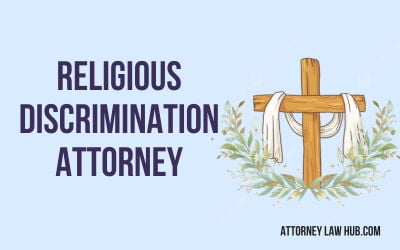Elder law is a branch of the law that focuses on resolving the particular legal issues that older people, their families, and caretakers experience. Elder law professionals are experts in offering advice and legal representation on a variety of matters that are especially important to seniors and their safety.
Estate planning, ongoing treatment planning, Medicaid and Medicare, guardianship and conservatorship, Social Security, retirement planning, wills and trusts, administration, elder abuse and neglect, advance healthcare instructions, and other legal issues are all included in the field of elder law.
These lawyers are knowledgeable about the various rules, laws, and policies governing these issues and are sensitive to the unique requirements of senior citizens.
What is elder law and what do elder law attorneys specialize in?

Elder law attorneys are essential in assisting elders and their families in making decisions and handling the complex legal issues related to growing. They work to protect the interests, rights, and resources of elderly people. Their main objective is to offer complete legal solutions that advance elders’ financial stability, access to healthcare, and general quality of life.
Elder law attorneys provide vital experience and support, whether it’s assisting in the creation of a thorough estate plan, leading families through the process of getting Medicaid coverage for long-term care, campaigning for elder rights, or addressing concerns relating to capacity and guardianship.
By specializing in this area, they are prepared to handle the various legal issues that come up as people and families age, providing understanding and enlightened assistance throughout the entire process.
How much do elder law attorneys typically charge for their services?

Elder law attorneys’ fees might differ significantly depending on several criteria. These factors include much difficulty of the legal matter, the level of experience and expertise of the attorney, the location of the attorney’s practice, and the particular services required.
Hourly Rates:
Several elder law attorneys bill their clients on an hourly basis. The average hourly rate can range from $150 to $500 or even more, although it can also vary widely. Hourly rates are often higher for lawyers with greater experience and for those working in more expensive areas. The overall expense will depend on how many hours the lawyer works on your case.
Fixed Fees:
Some elder lawyers may provide flat-cost arrangements for specific tasks, such as preparing an effortless power of attorney or developing an advanced healthcare strategy. Depending on the difficulty of the assignment, these fixed costs can range from a few hundred to a few thousand dollars. In terms of expenses, flat rates offer transparency and certainty.
Retainers:
Elder law lawyers occasionally ask for a deposit upfront from their clients. The retainer is a down payment used to pay for services as they are provided. The lawyer removes money from the retainer as work is finished. It’s important to specify how the retainer will be applied and, if necessary, renewed.
Conditional Fees:
Although less typical in elder law, some lawyers may provide commitment fee plans in specific situations, especially when the elderly are the targets of financial manipulation or abuse. In a contingency fee contract, the lawyer receives payment only if they are successful in obtaining compensation for the client.
Fees for consultations:
A lot of elder law attorneys provide a free initial consultation or one that has a set cost. Before hiring an attorney, you can discuss your issue with them, seek legal counsel, and learn more about how they work.
Ownership and the appointment of a guardian: The hourly rate for this service normally ranges from $350 to $650. Depending on the complications of the guardianship process and the hourly fee of the attorney, the price may change.
a comprehensive collection of asset preservation paperwork for a spouse of a memory loss patient: The price range for this full service, which aims to protect assets and handle difficult family dynamics, is between $8,000 and $16,000. The fee varies depending on elements such as the asset worth, the quantity of paperwork needed, and the amount of family friction.
Additional Fees:
In addition to the attorney’s fees, your case might also suffer other fees, such as filing fees for the court, organizational charges, and expert witness fees. Make careful to go over these potential extra expenses with the lawyer.
When should I consider hiring an elder law attorney?
When you or someone you care about is dealing with legal concerns or challenges that are specific to the requirements and circumstances of older people, you might think about contacting an elder law attorney. Elder law attorneys are experts in a variety of legal issues that are crucial for senior citizens and their families.

Here are some scenarios where it may be advantageous to hire an elder law attorney:
Property Planning:
An elder law attorney can offer advice if you need to create or update your financial plan, which includes wills, trusts, and powers of attorney, to ensure that your assets will be protected and distributed by your intentions.
Planning for Long-lasting Treatment:
To make sure that the financial and medical needs of you or your loved one are addressed, elder law attorneys can help you manage the challenging process of planning for long-term care, including Insurance and nursing facility eligibility.
Asset Protection:
An elder law attorney can create plans to protect your fortune if you’re worried about defending it against potential creditors, taxes, or other financial concerns.
Healthcare and Medicare:
An elder law attorney can help you recognize and maximize your eligibility for Medicare and other health insurance benefits, supporting you in getting necessary healthcare treatments and lowering out-of-pocket costs.
Custody and Control:
An elder law attorney can help you through the process of acquiring guardianship or custody if you’re looking for the legal ability to make choices on behalf of an incapable family member.
Elder Abuse and Financial Advantage:
An elder law attorney can assist you in taking legal action to help the vulnerable person and seek justice if you suspect or come across instances of elder abuse, neglect, or financial fraud.
Elder Financial Planning:
An elder law attorney may offer specialized advice to take care of your financial security, whether you’re managing investments, planning for retirement, or setting up your finances for your later years.
Advance Healthcare Policies:
Elder law experts can help you prepare advance healthcare instructions powers of attorney, and other legal papers that specify your medical preferences and choose a healthcare proxy to act on your behalf if you are unable to make decisions for yourself.
Elder Rights and Action:
An elder law attorney can fight for you if you feel that your rights as a senior are being imposed upon you or if you are having problems getting housing, treatment, or benefits.
Essentially, you should choose an elder law attorney when you need legal knowledge that is especially suited to the special issues and problems that older people face. They can offer helpful advice, make sure your rights are honohonored assist you in navigating the complicated legal issues around retirement, healthcare, and end-of-life planning.
What services do elder law attorneys provide?
Elder law attorneys are experienced in a broad variety of legal services offered to the special requirements and difficulties experienced by elderly people and their families. Their knowledge refers to many different aspects of becoming older, long-term care, and estate preparation in addition to standard legal issues. Elder law attorneys offer a variety of important services, including:

Retirement Planning:
By analyzing plans, Social Security payments, and other savings opportunities to provide regular income during their senior years, elder law professionals can assist people in planning for a financially comfortable retirement.
Housing and Real Estate Issues:
Senior housing facilities, nursing homes, and age-restricted communities are among the housing possibilities for seniors that these lawyers can advise on. They can also help with issues including real estate transactions, home equity loans, and property ownership.
Family Revenue Succession:
Elder law experts collaborate with families to create plans for passing on money and assets to the next generation while limiting financial consequences and keeping good relations within the family.
Grandparents’ Rights:
Elder law experts could help grandparents manage the legal system to guarantee they have access to their grandchildren in situations concerning custody or visitation rights for grandparents.
Age Discrimination:
Seniors who experience age discrimination in a variety of settings, such as the workplace, housing, or public places, can seek the support of elder law attorneys.
End-of-Life preparation:
Lawyers help people make thorough end-of-life plans, which may include decisions about organ donation, death and grave preferences, and legacy preparation.
Soldiers’ Benefits:
Elder law lawyers can help warriors and their families understand and access the many benefits, such as healthcare, pensions, and other support services offered by the state of Virginia.
Elder Financial Assault Avoidance:
These lawyers provide seniors and their families with information about possible financial fraud and abuse, enabling them to take proactive measures to preserve their property and financial security.
Tax planning:
To help seniors make the most of how much money they have, elder law professionals offer guidance on tax-efficient asset management, gifting, and charity-giving techniques.
Healthcare Insurance:
Individuals can receive assistance from attorneys in choosing and obtaining healthcare plans that meet their needs and financial constraints.
Digital Estate Planning:
Elder law experts offer services in developing plans for handling and transferring internet accounts, passwords, and other digital property following a person’s passing due to the growing significance of digital assets.
How do I find a reputable and experienced elder law attorney?
Research, recommendations, and considerable thought go into finding a respected and skilled elder law attorney. Here is a step-by-step guide to assist you in choosing the best lawyer for your requirements:

Research Online:
Online legal directories, law firm websites, and legal review platforms are good places to start your research. Look for lawyers or legal firms who focus on elder law and have a good track record with clients. A list of possible applicants should be made.
Request for advice:
Ask friends, family, coworkers, or neighbors whether they have any experience working with elder law attorneys as an alternative. Personal recommendations can offer useful details about a lawyer’s qualifications and reputation.
Consult state law associations:
The majority of state bar associations have a list of admitted lawyers. In your state’s bar association, you can look up elder law attorneys and check their qualifications.
Check Credentials:
Review the qualifications and credentials of the lawyers on your list by checking their credentials. Look for signs of elder law specialists or certifications. Expertise in elder law can be shown by obtaining a board license from reputable associations like the National Elder Law Foundation.
Schedule consultations:
Get in touch with the elder law experts on your list to arrange free meetings. To discuss your case and determine whether they are a good fit for your needs, many lawyers provide free or inexpensive consultations.
Ask Related Questions:
During the session, enquire about the lawyer’s background, track record, case-handling strategy, and fee arrangement. Ask them if they have experience with your particular legal situation, such as guardianship, Healthcare planning, as well as estate preparation.
Determine Compatibility:
Take into account whether you are at ease and feel comfortable speaking with the lawyer. Having a good interaction is extremely important since elder law cases frequently deal with personal and private issues.
You can improve your chances of locating a trustworthy and knowledgeable elder law attorney who can help you through the complexities of elder law problems and assist you in achieving your legal objectives by doing the procedures described above.
Conclusion
In conclusion, elder law professionals focus on serving the legal needs of elders and provide knowledgeable counsel on a variety of issues that are essential to their well-being. These lawyers are skilled at navigating the complexities of age-related concerns, from estate planning to healthcare, and guardianship to elder abuse.
Thorough research, asking for referrals, and setting up consultations are important actions to take while looking for an elder law attorney. Elder law specialists are essential in preserving the rights, resources, and standard of living of elderly people and their families.




